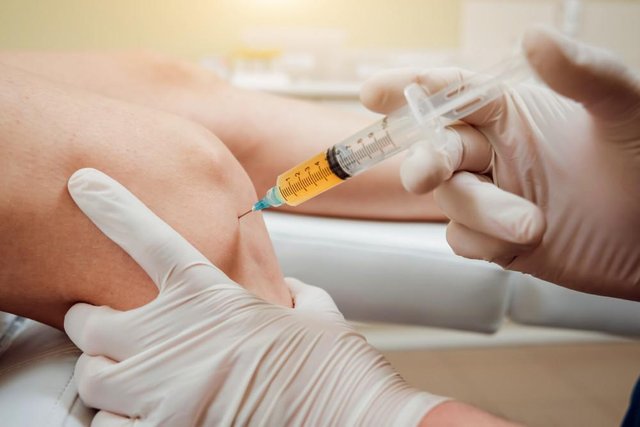
There are a wide variety of painful inflammatory health conditions. They can interfere with daily life and decrease the quality of your life. For this reason, the medication market offers a lot of treatment options to relieve pain and improve your wellbeing. While over-the-counter remedies can help deal with mild pain, their effect is usually not enough to relieve more serious pain. In this case, your pain doctor can recommend cortisone shots.
If you are going to get a cortisone shot, it can be beneficial for you to obtain more information about this treatment option. Below are answers to 5 common questions about cortisone injections.
1. What is a cortisone shot?
Cortisone shot is an injection used to treat painful inflammatory conditions that decrease the quality of life. Cortisone shots are also called steroid or corticosteroid injections. Cortisone is an artificial substitute for the hormone cortisol that naturally occurs in the human body. This type of steroid helps relieve inflammation and leads to less pain.
2. What happens during and after the injection?
Before injection, the doctor cleans the area of injection with a special cleaning solution to prevent infections. Then, the doctor applies a numbing lotion to reduce discomfort from the shot and make an injection. After you have an injection, the doctor covers the targeted area with a bandage to prevent infections.
After an injection, you may experience redness at the site of injection and face warmth. Your doctor may recommend you apply an ice pack at the injection site to reduce discomfort from injection and prevent bruising. It also isn’t recommended to take baths after the injection. Choose a shower to prevent complications. You need to be gentle with the area around the injection for several days and avoid its overstraining.
3. What is cortisone used for?
Cortisone shots are often used to treat inflammation in small specific areas of the body, like muscle or joint. In some cases, cortisone injections can be prescribed to treat a more widespread inflammation like an allergic reaction or asthma. Besides, cortisone shots can help suppress your immune system response to certain triggers, narrow blood vessels, and change the metabolism. Some of the common conditions treated with cortisone injections include:
- Arthritis(osteoarthritis, reactive arthritis, psoriatic arthritis, and rheumatoid arthritis)
- Gout
- Bursitis
- Back pain
- Tendinitis
- Psoriasis
- Eczema
- Cystic acne
- Systemic autoimmune conditions(lupus)
The cortisone shots can be used as the main treatment option or be a part of the treatment strategy. If you have one of the following conditions, discuss with your doctor how cortisone shots can help improve your health.
4. What are the advantages of cortisone shots?
Cortisone injections can be used to treat inflammation in certain parts of the body. Thus, it can be used to treat inflammation of the particular joint or tendon. They can also treat widespread body inflammation, which affects multiple joints. Besides, cortisone injection allows the doctor to deliver the cortisone directly into the affected area. This helps achieve the desired effect within a few days. The effect of cortisone injection usually lasts a month or even longer.
5. What are the side effects of cortisone shots?
Despite the pain and inflammation-shedding properties, cortisone shots have a range of potential side effects. Short-term use of cortisone rarely causes serious complications. In some cases, it can lead to infection, skin color changes, tendon weakness, bleeding, and soreness in the targeted areas. You need to be extremely careful about cortisone injections if you have diabetes. Some people report blood sugar elevation after cortisone shots.
The long-term use of cortisone has more serious complications. It can cause the thinning of the skin and bones decoration. You may experience easy bruising, face puffiness, and elevated blood pressure that is a major risk factor for heart disease. Some people who frequently use cortisone injections may even develop a serious eye condition called cataracts.